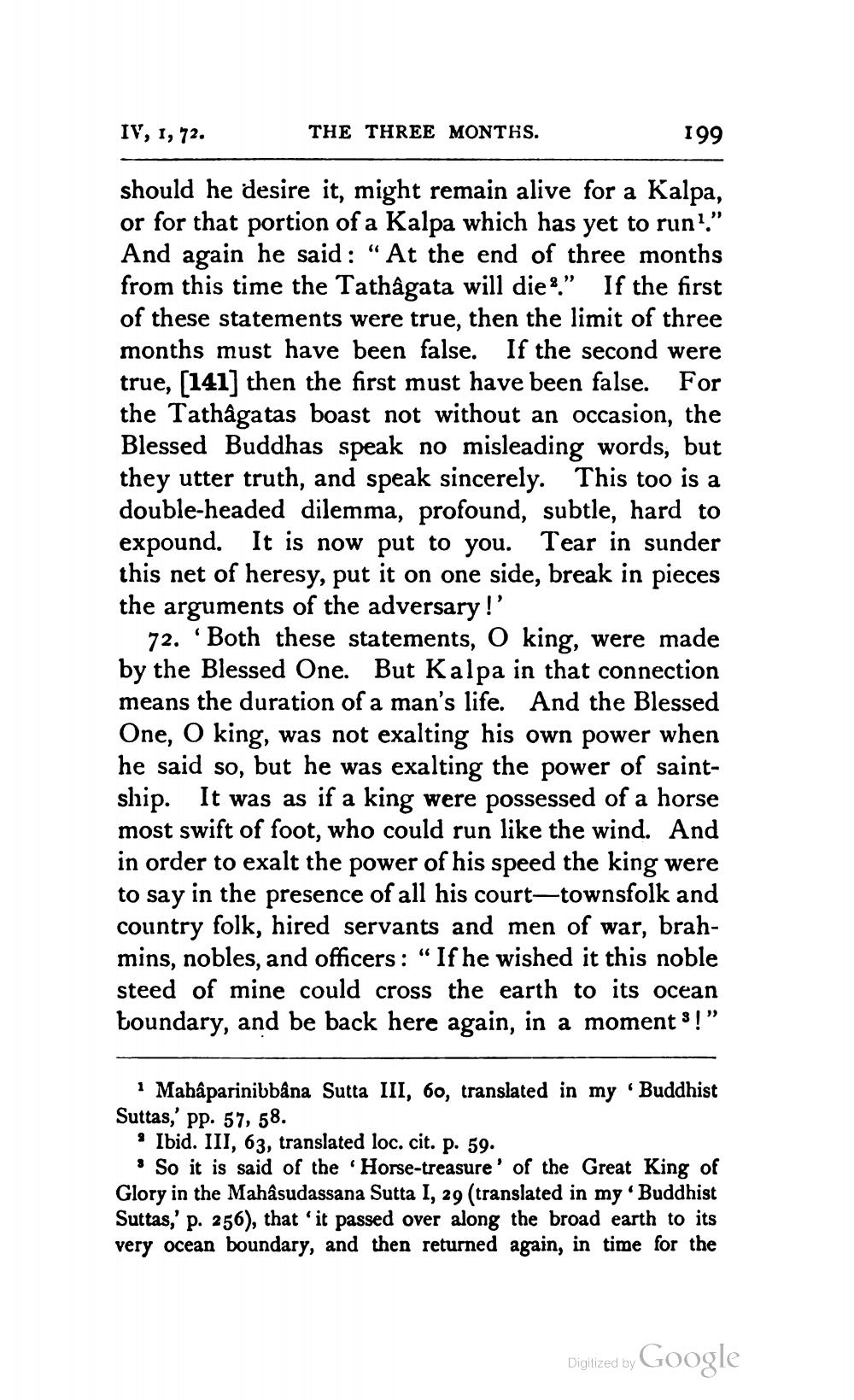________________
IV, 1, 72.
THE THREE MONTHS.
199
should he desire it, might remain alive for a Kalpa, or for that portion of a Kalpa which has yet to run?." And again he said: “At the end of three months from this time the Tathagata will die?" If the first of these statements were true, then the limit of three months must have been false. If the second were true, [141] then the first must have been false. For the Tathagatas boast not without an occasion, the Blessed Buddhas speak no misleading words, but they utter truth, and speak sincerely. This too is a double-headed dilemma, profound, subtle, hard to expound. It is now put to you. Tear in sunder this net of heresy, put it on one side, break in pieces the arguments of the adversary!'
72. Both these statements, O king, were made by the Blessed One. But Kalpa in that connection means the duration of a man's life. And the Blessed One, O king, was not exalting his own power when he said so, but he was exalting the power of saintship. It was as if a king were possessed of a horse most swift of foot, who could run like the wind. And in order to exalt the power of his speed the king were to say in the presence of all his court—townsfolk and country folk, hired servants and men of war, brahmins, nobles, and officers: “If he wished it this noble steed of mine could cross the earth to its ocean toundary, and be back here again, in a moments!”
* Mahaparinibbâna Sutta III, 60, translated in my · Buddhist Suttas,' pp. 57, 58. • Ibid. III, 63, translated loc. cit. p. 59.
So it is said of the Horse-treasure' of the Great King of Glory in the Mahâsudassana Sutta I, 29 (translated in my Buddhist Suttas,' p. 256), that it passed over along the broad earth to its very ocean boundary, and then returned again, in time for the
Diglized by Google




